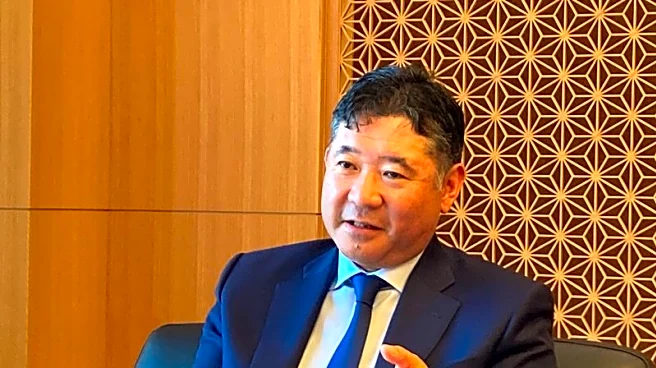What's Happening?
The European Union is intensifying efforts to combat the illegal importation of goods from China, which has been depriving the bloc of significant revenue. Recently, the Port of Piraeus in Greece became a focal point for this illicit trade, with officials reporting the seizure of a large quantity of goods and ongoing monitoring operations. The European Public Prosecutor’s Office (EPPO) has charged six individuals, including two customs officers, for their alleged involvement in criminal networks that have been importing goods fraudulently from China into the EU. The charges stem from a raid at the port in June, which resulted in the seizure of 2,435 shipping containers filled with illegally imported goods, such as e-bikes, textiles, and footwear. This seizure is the largest to date and could have resulted in €250 million ($294 million) in damages through evading customs duties and VAT.
Why It's Important?
The illegal importation of goods into the EU has significant economic implications, causing an estimated loss of €350 million ($412 million) in customs duties and €450 million ($530 million) in VAT over the past eight years. This ongoing issue highlights the challenges faced by the EU in protecting its market from fraudulent activities. The seizure at Piraeus underscores the need for stringent enforcement and monitoring to prevent further financial losses. The involvement of customs officers in these criminal networks raises concerns about the integrity of border control operations and the effectiveness of anti-fraud measures.
What's Next?
The EPPO's investigation, code-named 'Calypso,' continues to target criminal networks across Greece, Spain, France, and Bulgaria. The seized containers are undergoing inspection to uncover further fraudulent practices. The EU may consider strengthening its anti-dumping duties and customs regulations to deter illegal imports. Additionally, there may be increased scrutiny and reform of customs operations to prevent future breaches. The ongoing investigation could lead to more arrests and charges as authorities work to dismantle these networks.
Beyond the Headlines
The involvement of organized criminal networks in the illegal importation of goods highlights broader issues of international trade fraud and money laundering. The EU's efforts to combat these activities may lead to diplomatic tensions, particularly with China, as punitive measures could instigate trade disputes. The situation also raises ethical concerns about the exploitation of legal loopholes and the role of professional enablers in facilitating illegal trade.











